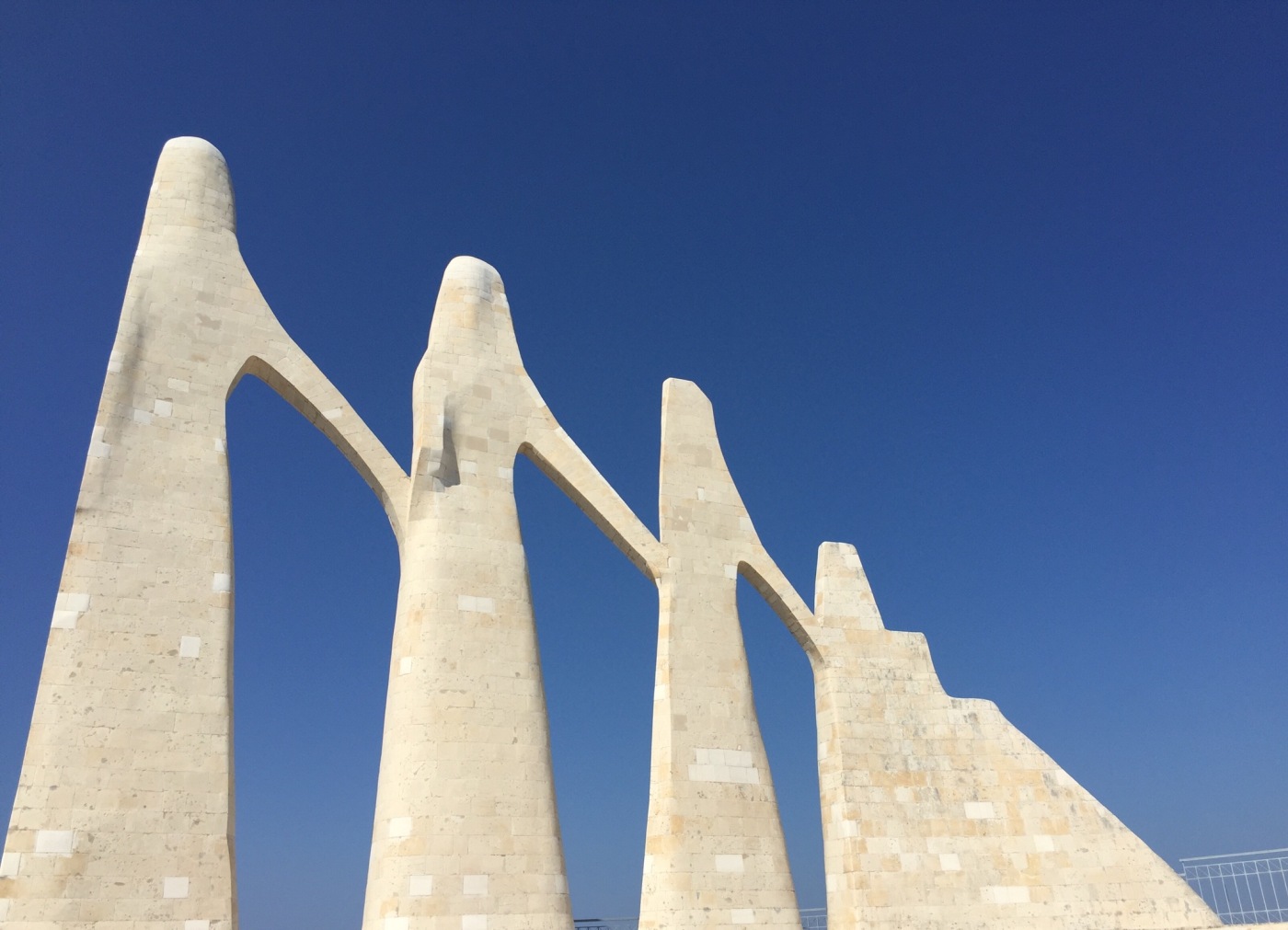My chest tightens and I try to take a deep breath. I pull over to the side of the road, and through my tears, try to catch another glimpse of the great white monument on top of the hill that has caught me so unawares. Although it’s a modern design, it is unmistakably the shape of people, women, holding hands and getting smaller and smaller as they disappear over the edge of a 30 meter drop. It is the Zalongo monument. A memorial salute to the Souliote women and children who ‘danced’ to their deaths to avoid capture by the troops of Ali Pascha on December 16, 1803.
I’m here quite by chance. I’ve travelled to Kastrosykia, Preveza to perform a wedding ceremony and when reading some information about the local area I came across a description of the monument and it rang some bells. A few months ago I read a book called ‘The Nifi’ by Linda Fagioli-Katsiotas. It’s a fascinating and true account of Linda’s attempt to build a family home in her husband’s native Greek Village. During the course of the story, Linda recounts the story of the Souliote women. And it’s her words that resonate in my head and conjure up images of these women and children as they are fleeing from capture. Not fleeing from death, but a fate far worse in the hands of the Ottoman troops of Ali Pascha hot on their heels.
This mass suicide wasn’t an act of heroism or patriotism. These women and their men folk were literally warriors, for over 15 years they had been fighting the Ottomans. And winning. They must have been pretty fierce and extremely hardy. Sadly a traitor amongst their midst betrayed them and they were forced to surrender. Ali Pascha promised to release them and agreed to let them relocate to the Ionian Islands. His army however had other ideas and attacked the Souliotes. The women and children fled with whatever they could carry. They couldn’t have paused for breath as they traversed mountains and gorges in an amazing feat of endurance. Tragically they had no idea that their journey would take them to such a point of no return. With Ali Paschas troops closing in on them from one direction, they found in the opposite direction lay a 30 metre drop off a sheer cliff.
This is how Linda recounts the story:
“If there would be no escape for them, then death would be a kindness. There was no panic, no crying. One of the older women began to sing.
“Take my farewell little springs, forests and high peaks….’
And slowly, one by one, the others began.
‘The fish cannot survive on land
As the flower cannot survive in the sand”
Connecting to each other with outstretched arms, the women slowly began to dance,
“and the Souliete women cannot live without freedom”
And then that older woman disappeared over the edge while the others continued with the smooth sound of their song.
And then one more was gone, and another…’
I have to stop to catch my breath again, but this time it’s the upward climb of over 400 steps that’s got me. The monument up close is beautiful. Very pure in shape and design and the strong white figures are striking against the background of blue sky. As I sit at the feet of the Souliote women I think about the strength and resilience of these women. And that over 200 years later there are still women fleeing from their own ‘Ali Paschas’, whether they be abusive partners or religious extremists. It’s a saddening thought.
As I descend the steps two things give me hope. In Linda’s story there is a survivor amongst those Souliote women. And secondly, there is a small group of rock climbers ascending that 30 metre sheer rock face which 22 women and children toppled from. One of them is a woman.
The Nifi’ by Linda Fagioli-Katsiotas is available to buy on Amazon UK here and Amazon.com here Linda’s blog is a fascinating series of insights into Greek village life and is well worth a read too: http://truestorythenifi.blogspot.com










August 15, 2016 at 7:29 am
Thanks for sharing such a touching piece of history, what a beautiful monument to a tragic time, and another book to add to my list..
LikeLike
August 30, 2016 at 5:48 pm
Emotional right now… This was beautiful so is the monument! #proudtobeGreek #proudtobeafeministwoman #donttakefreedomforgranted
LikeLike